How Brittney Griner became a pawn in the US-Russia geopolitical war
The Texas-born basketball player is an international star – and US authorities believe she is being wrongfully detained, writes Andrew Buncombe

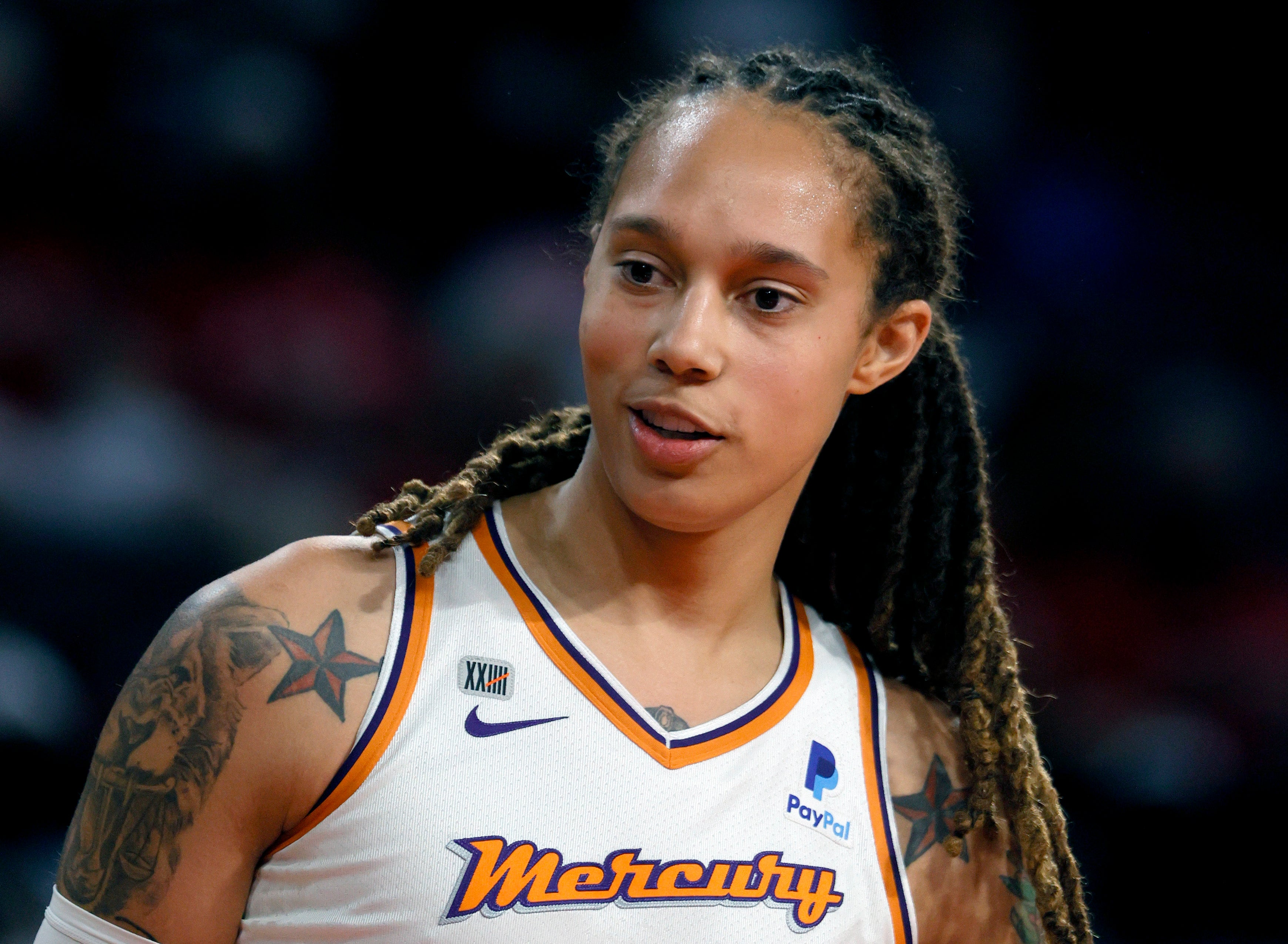
Brittney Griner has an extraordinary reach. She stands at more than two metres in height (6ft 9in) and if you watch her in action you will see she puts it all to good use.
She loves to shoot, to drive at the opposition – and she delights fans by hanging onto the rim after dunking. She is Black and outspoken, and for a number of years, she has been one of the most exciting players in American women’s basketball – a powerful influence not just within the sport itself, but in the broader culture that supports it.
In 2013, when she was just 22, she was the one draft pick in the Women’s National Basketball Association league, signing for the Phoenix Mercury, where she was picked to play in the centre position. That year, she was the first openly gay athlete to be sponsored by Nike.
“We can’t get into specifics. But it’s safe to say we jumped at the opportunity to work with her because she breaks the mould,” Brian Strong, a company spokesperson, said at the time.
She holds two Olympic gold medals, and in a nation of sports lovers fanatically obsessed with statistics, she has more than once been voted the most valuable player, or MVP.
Now, Griner is a prisoner in Russia, detained by the authorities in Moscow, and has pleaded guilty to the possession of cannabis oil after she was stopped when she flew into Sheremetyevo airport on 17 February, one week before Russia launched its invasion of Ukraine.
She had been due to play again for a Russian team, UMMC Ekaterinburg, an outfit for which she and a number of others from overseas had played in the off-season, lured by wages far higher than those available back home.
She and her wife, Cherelle, whom she married in the summer of 2018, had hoped this would be her last season with the Russian team. Griner turned 31 in October last year, and had been playing high-level basketball for more than a dozen years without much of a break. Such a schedule would be punishing for any athlete.
Now Griner’s future is very uncertain indeed. The charges to which she has pleaded guilty carry a penalty of up to 10 years in jail.
Vladimir Putin’s spokesperson Dmitry Peskov told NBC News that, contrary to what the state department claimed, the US sportswoman was not “a hostage” and not being treated any differently from “hundreds and hundreds of Russian citizens that were sentenced for carrying hashish”.
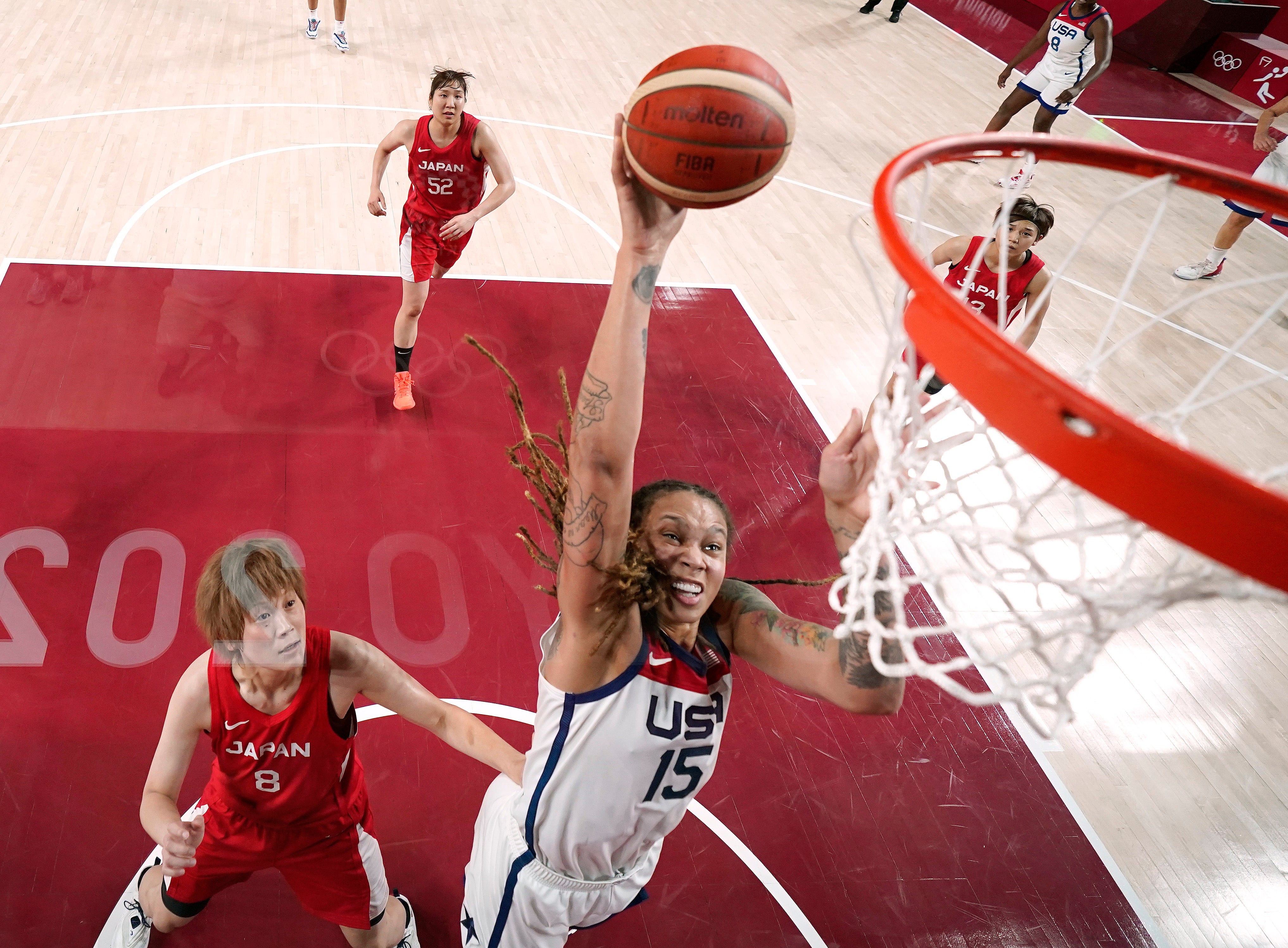
“Why should we make an exemption for a foreign citizen?” He said.
But Griner’s friends and supporters believe precisely that – that she is being treated differently. Moreover, they believe she has become a victim of the geopolitical tussle between Russia and the United States, as the conflict in Ukraine has turned increasingly into a proxy war, and that she is being used as a pawn by Putin in order to exert leverage over the West.
Initially, US diplomats sought to resolve the issue quietly, and to get her back home as smoothly as possible. Some fear that her case has now taken on such a high profile that Putin will likely demand something of considerable value – perhaps the release of a Russian spy or suchlike – before Griner is allowed home.
“I think what’s going on is a struggle for advantage – figuring out where’s the leverage, where’s the possible way that we can get one up on ‘the main opponent’, which is Putin’s term for the US,” historian Susan Smith-Peter tells The Independent.
Smith-Peter, professor of history at the City University of New York, adds: “It’s part of this kind of ever-shifting game of figuring out what is the pressure point, what can be used, what could be brought in, and what can hurt or even just embarrass the United States. She does become a sort of pawn.”
They can keep selling themselves as a Christian university, but they are more than happy to benefit from the success of their gay athletes. That is, as long as those gay athletes don’t talk about being gay
Griner was born in Houston, Texas, and went to school in the city’s northern suburbs. She was the youngest of four children, and her father was a police officer and former member of the US Marine Corps, who according to Griner cursed often, and made clear he did not approve of her being open about her sexuality.
She displayed prodigious sporting talent while still at high school, sufficient to secure a scholarship to play basketball at Baylor University, located in the city of Waco. There she set records and captured the attention of many. Yet she later said she did not feel she was living honestly until she left college, a conservative Baptist-affiliated school, which had an official policy against homosexuality. While still at Baylor she came out as a lesbian, but was told by a teammate that she ought to keep the matter private.
“I had a girl come up and tell me how her coach basically told them that they could not be gay on their team,” she later told NPR. “And I’ve heard stories of [how] some coaches will not recruit you if you are.” For Griner, such an arrangement amounted to not being honest with herself.
“I am 100 per cent happy,” she told ESPN in 2013, as she was signed by the Phoenix Mercury. “When I was at Baylor, I wasn’t fully happy because I couldn’t be all the way out. It feels so good saying it: I am a strong, Black, lesbian woman. Every single time I say it, I feel so much better.”
It was a theme she returned to in her 2014 memoir, In My Skin: My Life On and Off the Basketball Court. Baylor’s policy, she writes, was nothing but hypocritical. She hadn’t known the school had such a policy and was attracted because she wanted to play under Kim Mulkey, who was then Baylor’s high-energy, title-winning coach.
While Griner admired Mulkey’s work ethic and discipline, she did not appreciate her telling her to keep her personal life private, even to the extent of deleting Twitter posts about a girlfriend. She says Baylor wants to maintain its policy “so they can keep selling themselves as a Christian university, but they are more than happy to benefit from the success of their gay athletes”. She adds: “That is, as long as those gay athletes don’t talk about being gay.”
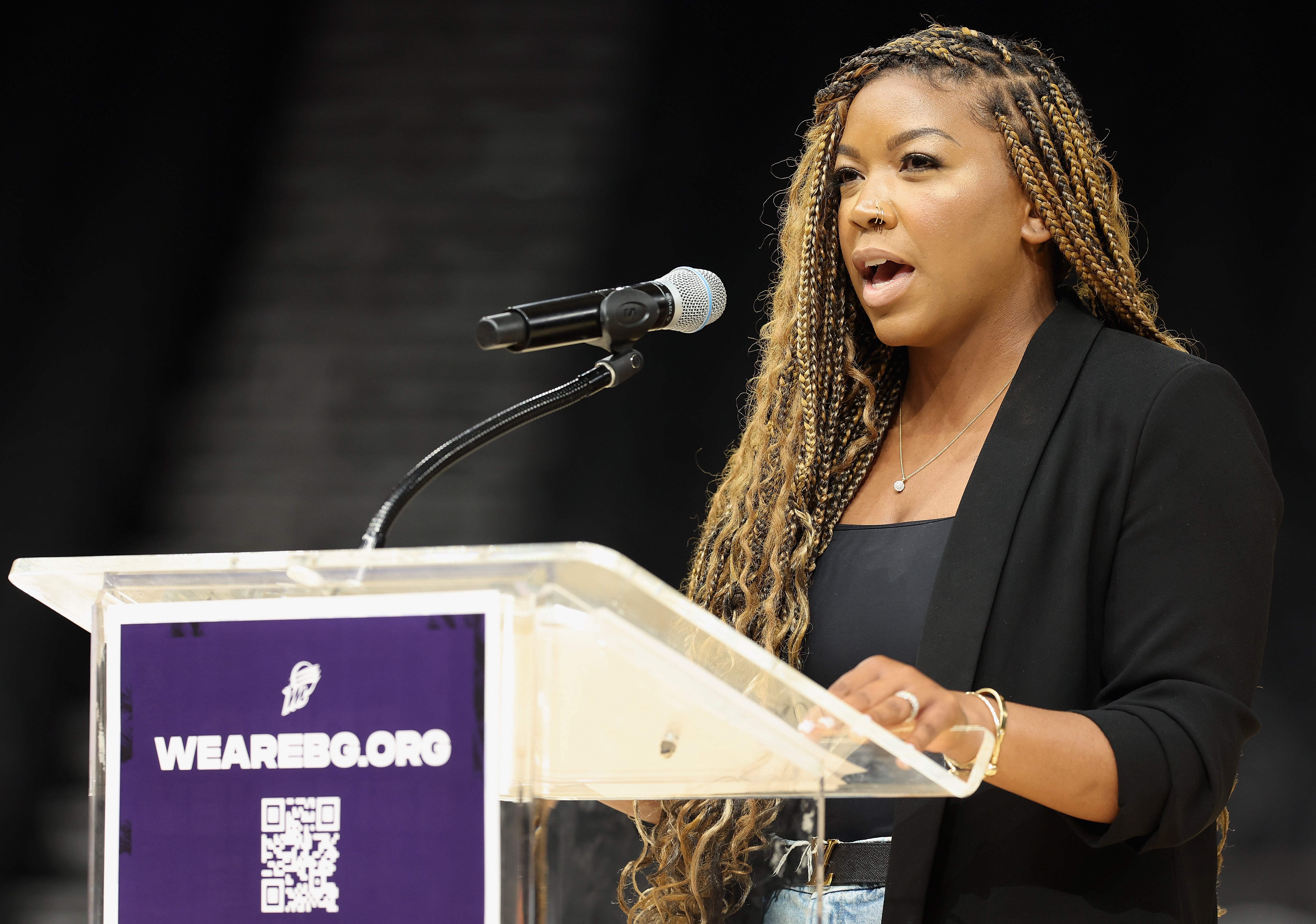
Griner has played every season for the Phoenix Mercury since 2013. But, like many American women, she has also played in the off-season for overseas clubs, including one in China. In 2014, she began playing in the off-season for Moscow’s UMMC Ekaterinburg. With her Phoenix teammate Diana Taurasi, Griner helped the team win back-to-back championships.
Yet while Griner and others enjoyed pitting themselves against other top international players, the decision to travel to Russia was largely financial. As a top player with the Mercury she was paid $227,000 (£191,000) as one of the highest-paid players in the US; in Russia she was being paid a reported $1m a year.
Data collated by the website Basketball Reference suggests that the average male player in the NBA earns $5.3m a year, based on information from 2021-2022. For a woman, the figure is $130,000. Meanwhile, the top male starters, such as Stephen Curry and Kevin Durant, make up to $45.7m and $42m respectively.
“If the pay deals were different, if the investors were actively seeking promoters, this would not be happening,” says Terri Jackson, executive director of the Women’s National Basketball Players Association. “We have to rethink and reimagine women’s basketball.”
She says that, like all athletes, Griner knew she had a limited window, and that the non-stop schedule she maintained was punishing. “When the season in the US ends, there is barely a week before our players are off to Poland or to Israel or to Australia.”
UMMC Ekaterinburg is bankrolled by two Russian oligarchs, Andrei Kozitsyn and Iskander Makhmudov. They are the co-founders of a mining company, Ural Mining Metallurgical Company, which is said to be Russia’s leading zinc miner and its second-biggest copper producer.
Kozitsyn, 62, is said to be worth $3.4bn, while Makhmudov, 58, is said to be worth $6bn. (Their company did not respond to inquiries, and neither did UMMC Ekaterinburg.)
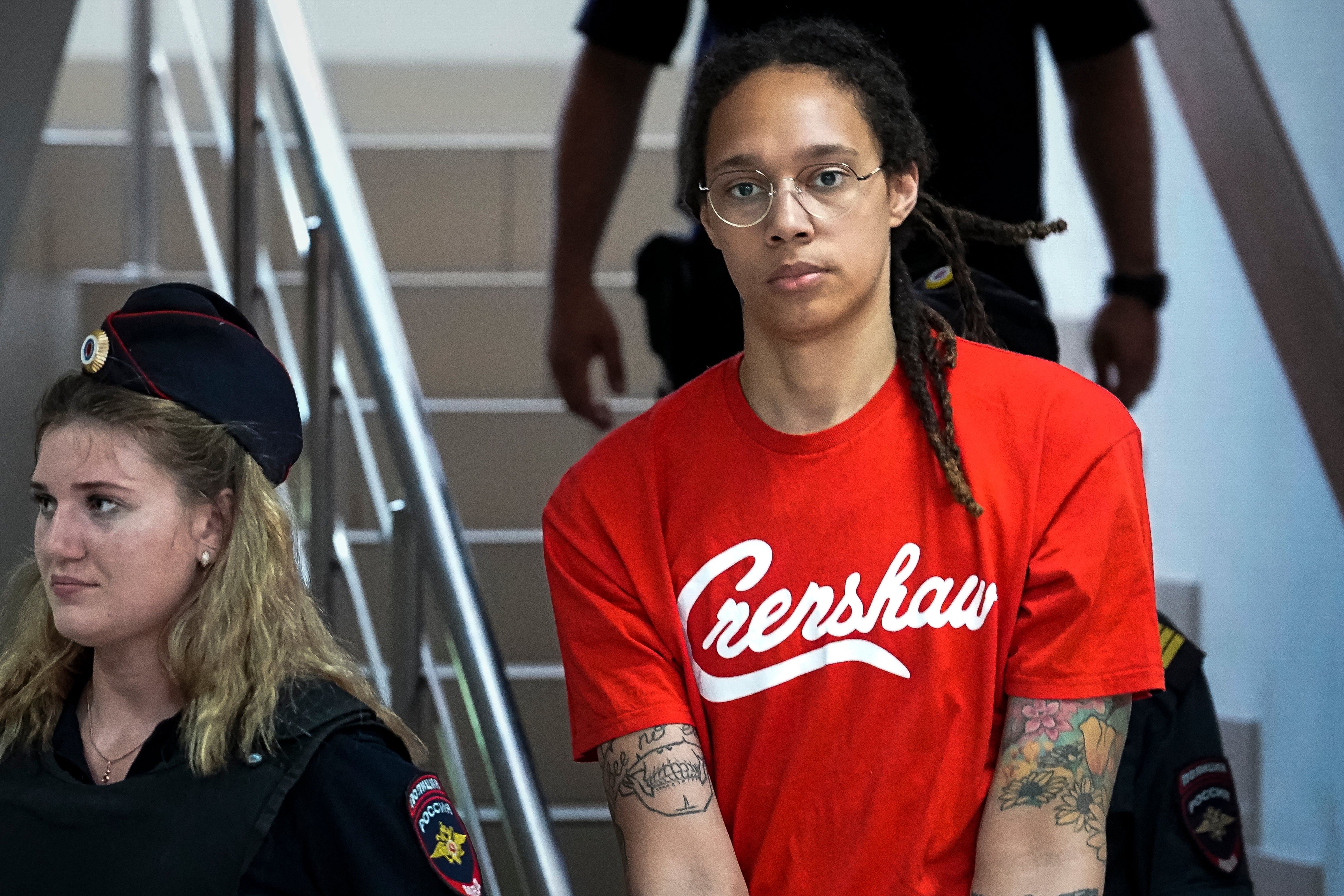
It seems, however, that they recognise the value of Griner and other international stars. The historian and writer Kimberly St Julian-Varnon grew up in east Texas and had classmates who attended Baylor at the same time as Griner. She says she would see the athlete out and about, at the shops.
“She is groundbreaking in many ways, and not just demographically because she’s a Black woman and gay woman,” says St Julian-Varnon, a doctoral student at the University of Pennsylvania, who has studied the Soviet Union and the issue of race. “She’s one of the best female players and so I think that’s important too. It’s just how good she is and how good she’s been. People who’ve known her from high school ball to college ball to professional ball, and all of them are still watching her and concerned about her.”
St Julian-Varnon, who has been monitoring the case since news emerged of Griner’s arrest – she says she actually saw a video posted on a Russian Telegram channel before most in the West were aware – says the US star was “highly paid and celebrated because they’re bringing a kind of Western influence and celebrity to Russia”.
Griner is not an unknown entity, says St Julian-Varnon, “and that’s also one of the reasons why you don’t necessarily see a lot of discourse about her that’s negative in the Russian state media. They’re not trying to say she’s a spy. She is not accused of anything violent.”
Brittney Griner is accused of drug smuggling. Specifically, she is accused of having cannabis oil in vape canisters that were in her luggage. Moreover, she pleaded guilty when she appeared before a court in Moscow. She said she had not intended to break any law. The Associated Press reported that, speaking through an interpreter, she had claimed to have “committed this act through negligence, unintentionally”.
Her lawyer, Maria Blagovolina, told reporters outside the court: “We of course hope for the leniency of the court. Considering all the circumstances of the case, taking into account the personality of our client, we believe that the admission of guilt should certainly be taken into account.”
Russian officials had said before the hearing that the American’s case could not be considered for clemency until she had made the guilty plea.
Valena Beety, an innocence litigator and former federal prosecutor who is currently a professor of law at Arizona State University, located in Phoenix, has also been watching Griner’s case.
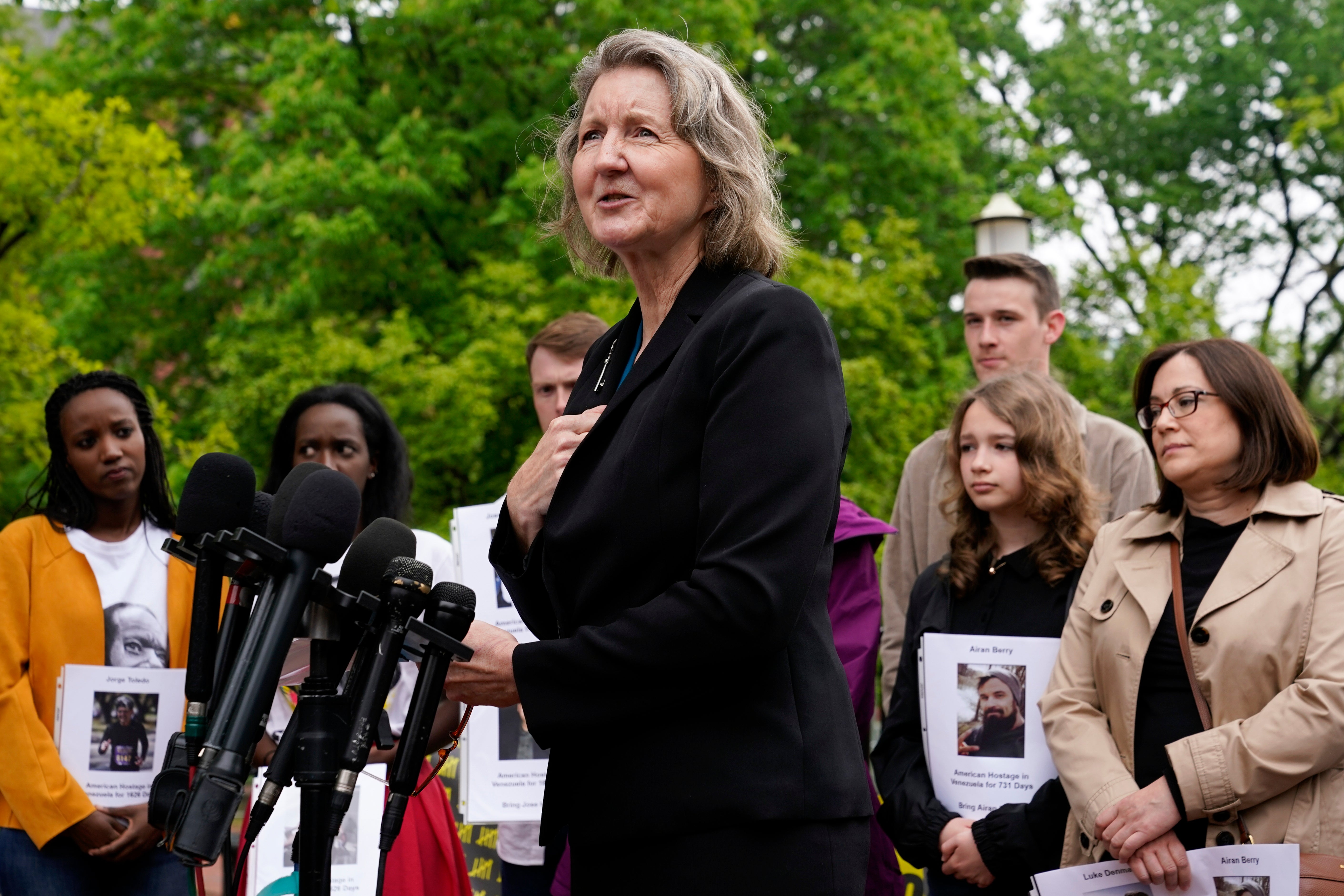
“In the United States, over 95 per cent of people take a guilty plea, regardless of whether they are guilty or innocent, to avoid a more severe penalty,” she says. A guilty plea allows people to avoid a trial, and get home to their families faster. “So that same reasoning sadly applies for Russia, particularly since the trial was a foregone conclusion that she was going to be found guilty,” adds Beety, author of Manifesting Justice: Wrongly Convicted Women Reclaim Their Rights.
She continues: “Over 99 per cent of people who go to trial in Russia are found guilty. So facing those odds, it’s in her best interest to be able to gain whatever leniency she can from the courts, and to help the negotiation between Russia and the United States and bringing her home.”
The US government says it is doing everything it can. After criticism from Griner’s wife – and after Griner released a letter she had sent to the White House – Joe Biden called Cherelle and discussed the case.
He has also assured the family of Paul Whelan, a former US marine, who has been held for more than three years, that they were seeking his return too.
“This morning I received a call from President Biden and Vice President Harris,” Gherelle Griner wrote on Instagram. “I am grateful to the both of them for the time they spent with me and for the commitment they expressed to getting BG home. While I will remain concerned and outspoken until she is back home, I am hopeful in knowing that the President read my wife’s letter and took the time to respond. I know BG will be able to find comfort in knowing she has not been forgotten.”
She added: “I want to thank everyone who has fought so hard for BG. It means the world to my entire family as well as my wife. Please continue to pray for my family and all the other families of the wrongfully detained, as our pain remains active until our loved ones are brought home.”
On the day Griner pleaded guilty, the White House held a phone briefing for reporters led by senior National Security Council official John Kirby. “As we’ve stated before, the Russian Federation is wrongfully detaining Brittany under intolerable circumstances,” he said.
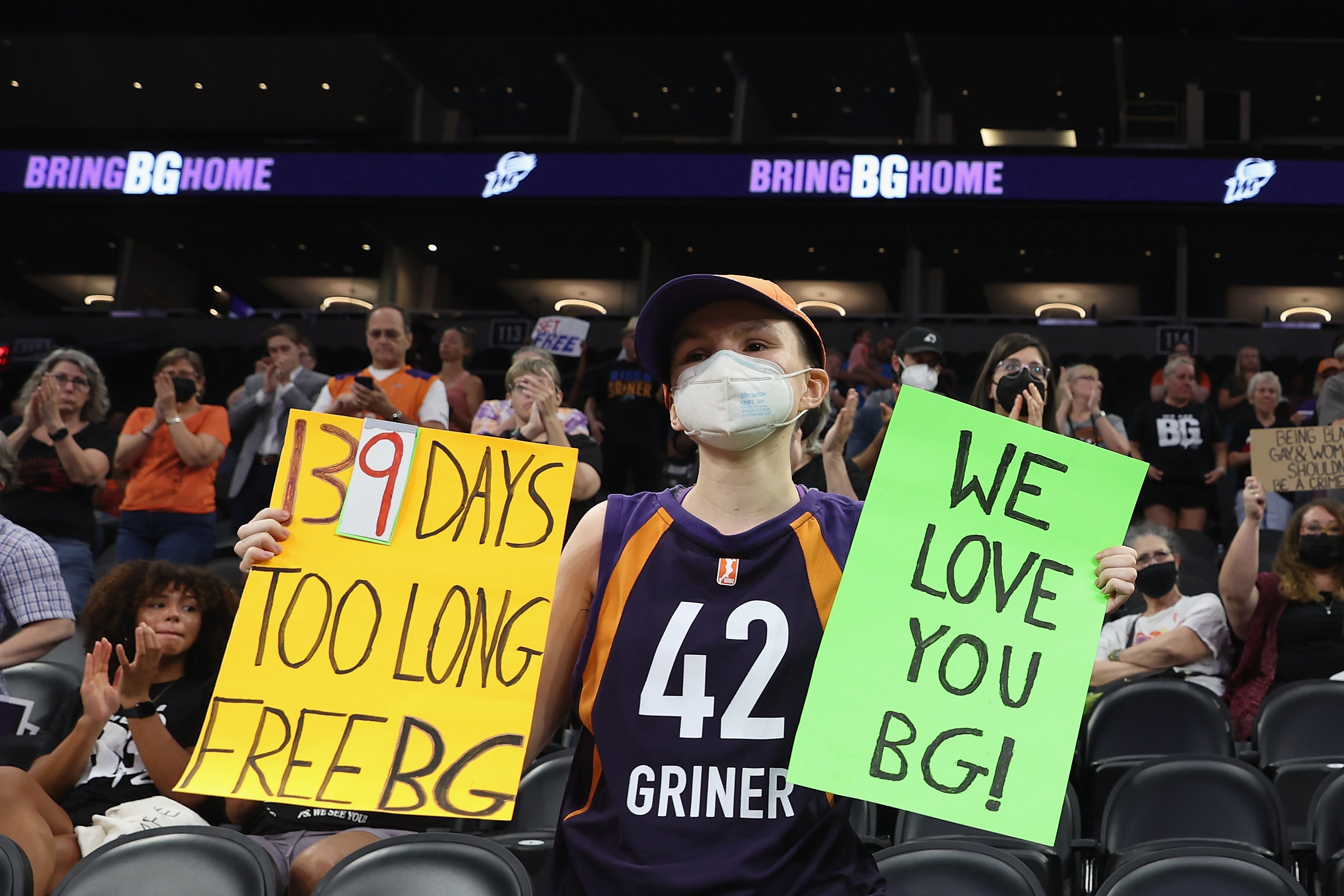
“I won’t speak to the specifics of her legal case - that’s really a question to put to her representatives – but the president’s been clear about the need to see every American wrongfully detained, or held hostage to be released, including Brittany.”
Asked about media reports about the potential involvement of former governor Bill Richardson, who has previously led efforts to secure the release of US hostages from around the world, Kirby declined to comment.
A spokesperson for The Richardson Center says: “Due to the obvious sensitivities we are unable to comment, at this point.”
As the Griner detention has gone on, there has been mounting speculation that in order to get her back to the US, America is going to have to give up something in return. In short, for Griner to get out of jail and get back to playing basketball in the United States, Biden is going to have to agree to some sort of prisoner swap or exchange.
In April, as the war in Ukraine was getting bloodier and the US’s engagement in the conflict ever deeper, Washington and Moscow surprised observers with a prisoner swap. American Trevor Reed, a US citizen and former marine who had been detained in Russia since 2019, after allegedly punching a Russian police officer while drunk, was released in exchange for the return to Russia of Konstantin Yaroshenko.
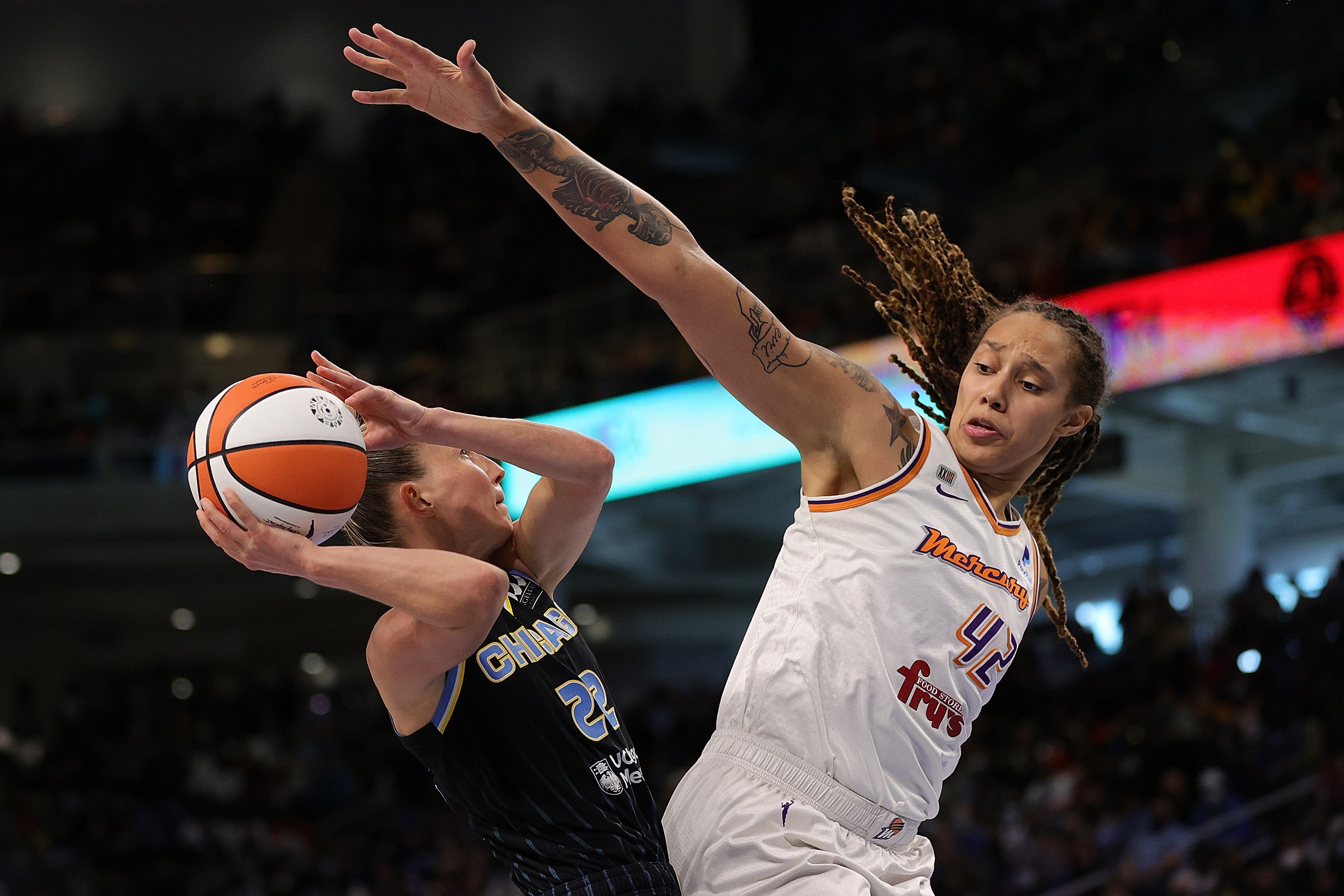
The exchange of Yaroshenko and Reed, seen as a swap of political prisoners was all the more noteworthy because it appeared to take place in isolation of the growing hostility between the two sides.
There is speculation a similar deal for Griner and Whelan. Russian media has suggested the person that Putin might seek in exchange would be Russian arms trader Viktor Bout, nicknamed “the Merchant of Death”. Bout was convicted in a US court in 2011 and is currently serving 25 years after he was found guilty of conspiracy to kill US citizens and provide aid to a terrorist organisation.
He was arrested after selling weapons to the Farc, a Columbian revolutionary guerilla group that has since entered the policing process. There is no evidence the Farc has ever attacked the US, and Russia called his trial and conviction a stitch-up.
Would Biden agree to such a high price? He may have little choice. “I’m stuck by the more publicity, and the more attention directed toward Brittney Griner,” says Thomas Schwartz, Professor of European Studies at Vanderbilt University, “the higher the price to pay might end up being,”
Schwartz, the author of several books about American history, says during the Cold War, spies were frequently exchanged, even if both sides denied their real roles. He says more recently some nations – he points to Iran and Russia – have held people as hostages and demanded ransom. Biden would hate to return Bout to Russia, says Schwartz, as it would make him appear to be giving in to Moscow.
Yet, Biden also knows that America wants him to get Griner and Whelan back. The faster the better, especially with an election coming up. “That puts Biden in a tough position because he doesn’t want to be seen as weak in front of Putin,” he says. “But he might need to do that for his own domestic purposes.”




Join our commenting forum
Join thought-provoking conversations, follow other Independent readers and see their replies
Comments